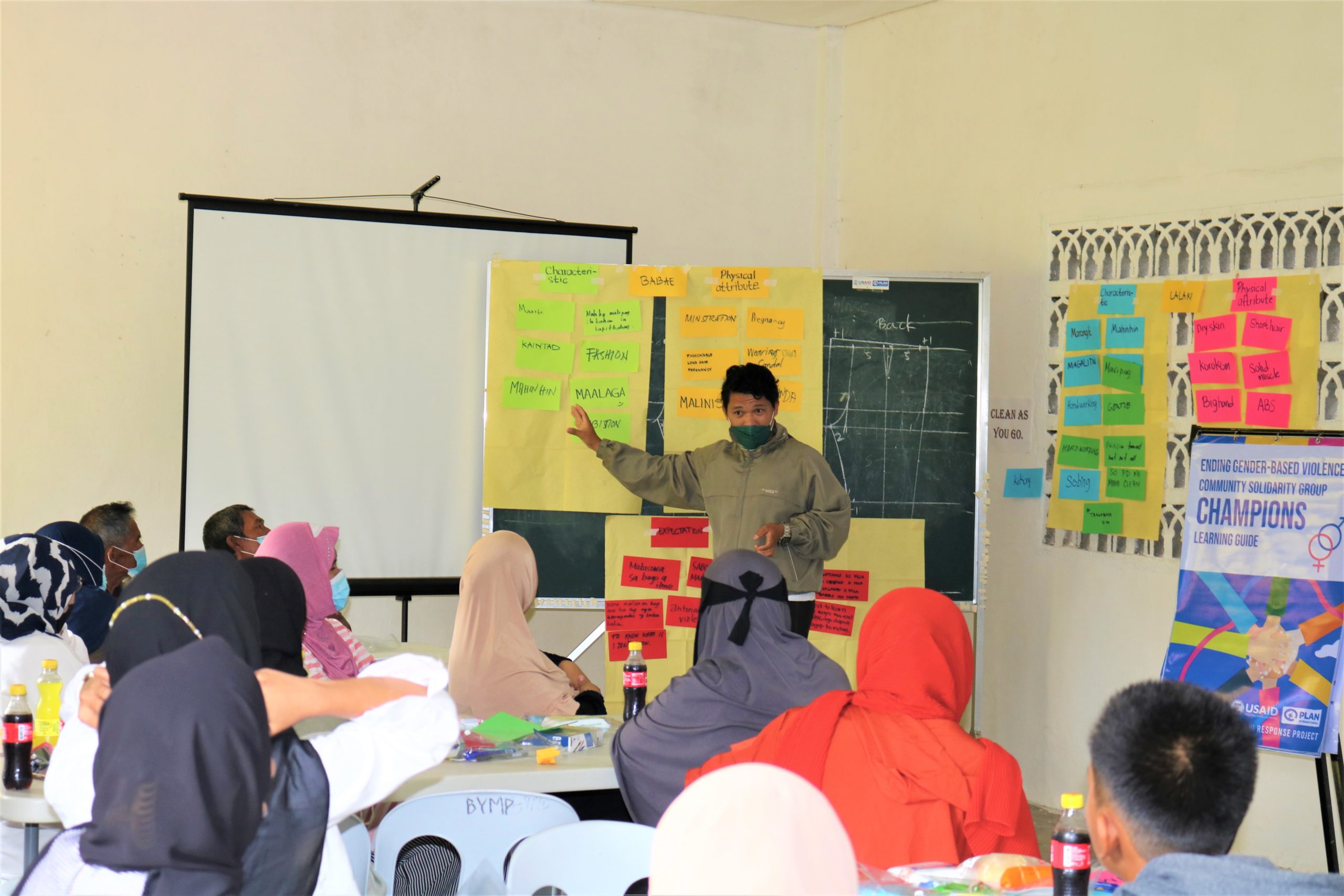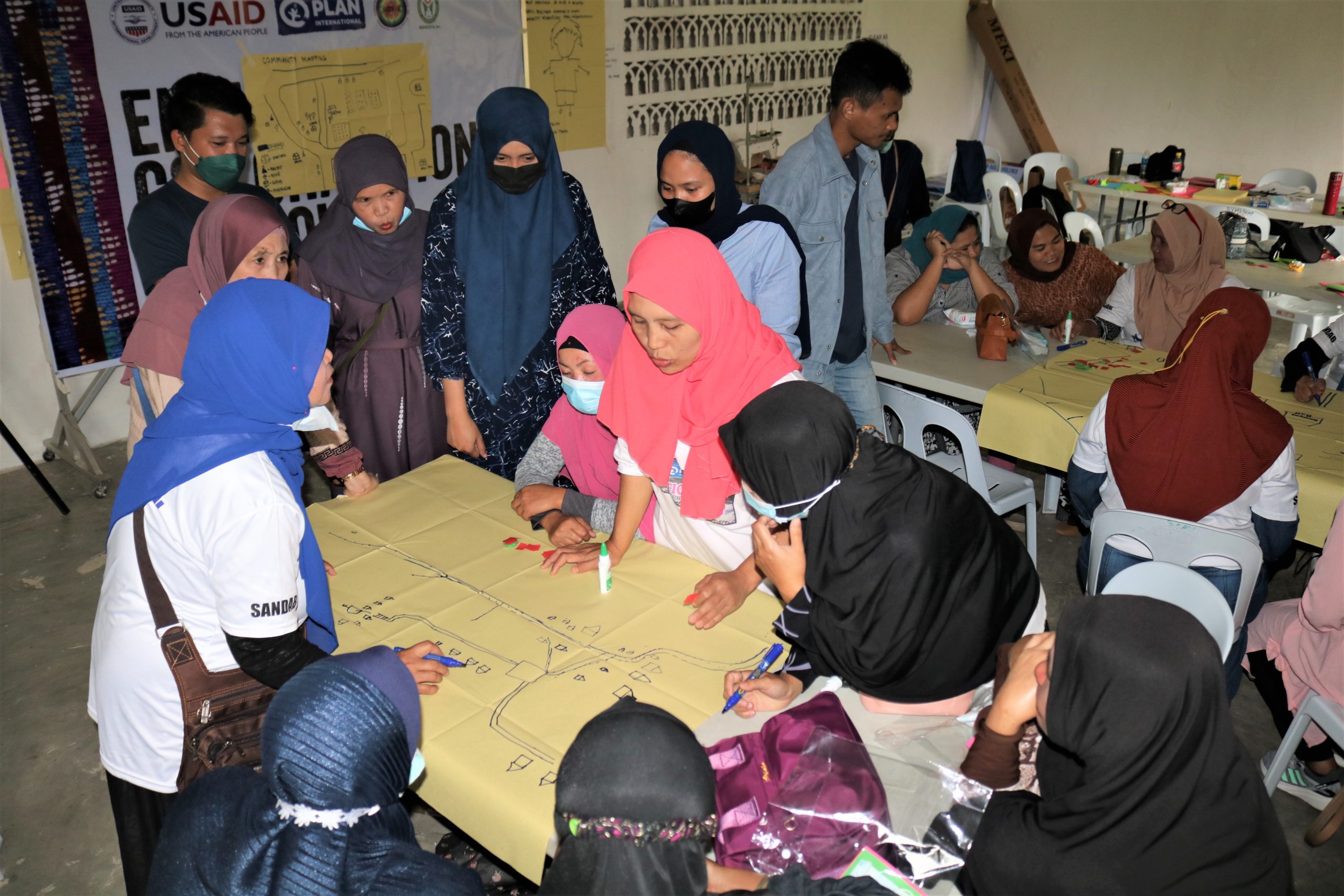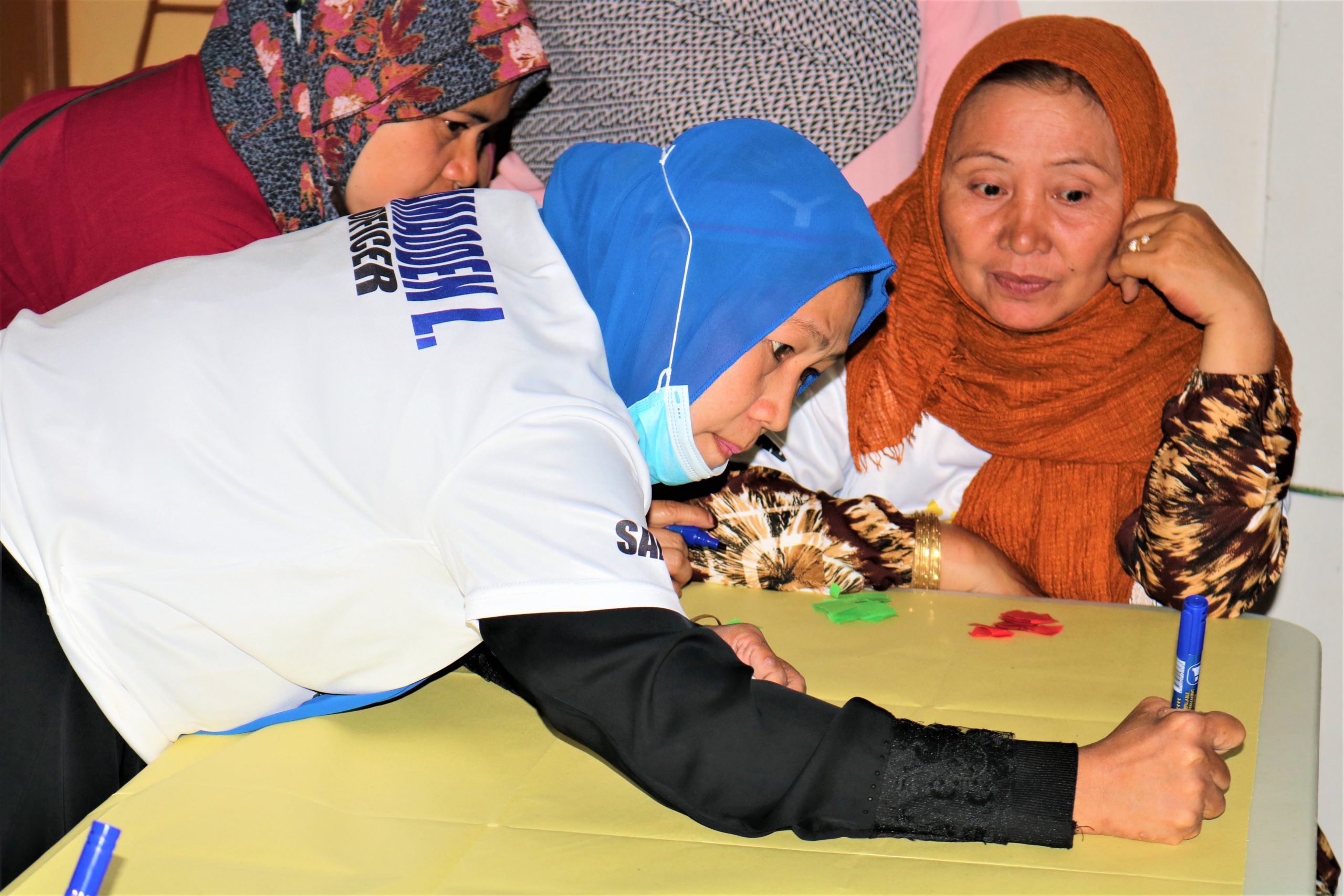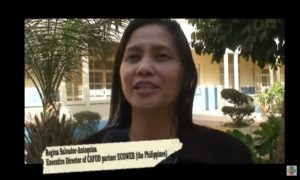At the community level, USAID-Marawi Response Project believes in the power of locally-led advocacy — and wants to push more community-based rollouts in Ending Gender-Based Violence (EGBV) by empowering women, girls, and diverse people in local contexts on the ground.
On March 26-27, 2022, the Butig Youth Movement for Peace (BYMP), a youth-led community-based organization in the municipality of Butig Lanao del Sur, took another step towards a safer and GBV-free community through EGBV – Community Solidarity Group (CSG) champions rollouts. The said rollouts were conducted in 2 clusters and were attended by groups of women, youth, farmers, and other vulnerable sectors held at BYMP Center, Sandab-Madaya, Butig Lanao del Sur.

BYMP works on vital issues that affect its local community since its foundation in 2018 — from education to peace and order, and now to gender-based violence, BYMP strengthens its advocacies through empowering new young members and building more partnerships with other organizations in and around their community. In fact, BYMP has led the coalition of youth-led organizations in Butig Lanao del Sur that aims to represent the youth sector and take a seat in the local government of Butig, Lanao del Sur.
BYMP posits that ending gender-based violence does not necessarily compromise the traditional system of the community, it is evident that the advocacy on EGBV empowers not only the survivor, but most especially the community at large.
BYMP remarked that GBV in Butig occurs in the forms of physical and verbal abuses, however, these are not recognized by the community as violence, and most of the victims are youth and women.

There is a lot of stigma around GBV and abuse. Many do not report it, especially among women and youths because it is a taboo for the Meranaws, a “culture of silence” as it is labeled, and the reputation of the survivor and their family may suffer.
This culture of silence has been the biggest challenge among all the EGBV champions during their rollouts. This is also the main factor why there are no recorded or documented GBV cases at both barangay and municipal levels. Most of the cases related to GBV are settled in the traditional system of Meranaws, Ijma and Taritib – a local law of Meranaws, that is mostly in an isolated setting.
The EGBV rollouts aim to educate the community about their rights under certain laws related to GBV that serve as a protection mechanism for the victims and survivors. Above all this information, the advocacy aims to establish a community where people are informed about how and where to file reports in case GBV happens or if they want to.
Every community or society has a culture that is fastened with harmful norms and practices – these are deep-rooted into the way the community lives and only a collective reflection and effort, involving the whole community including local and religious leaders, will change these narrated harmful norms and practices.


